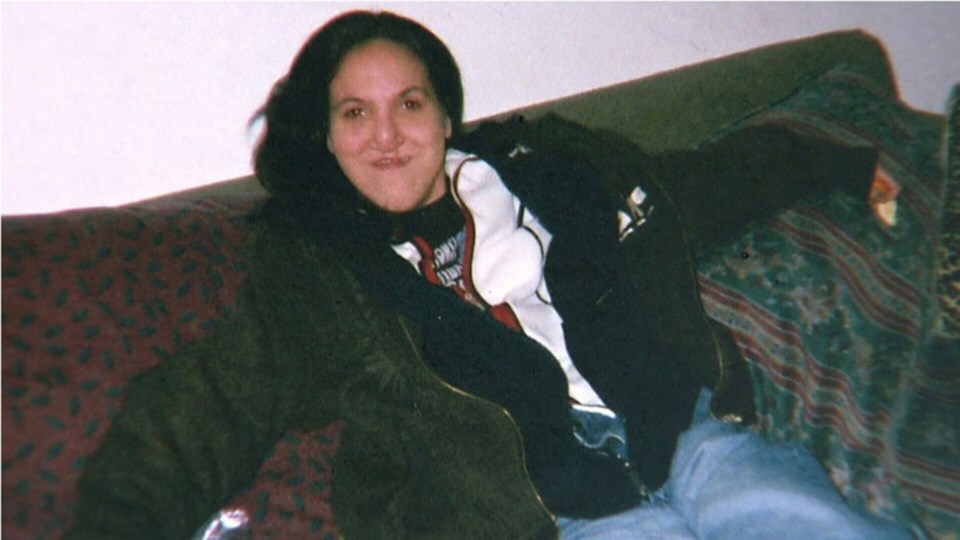Nearly a year after Lila Moody-Ogilvie’s death, the �鶹��ýӳ��Police Board concluded its investigation and review of .
By July 2019, the �鶹��ýӳ��Police Department had begun implementing several changes to how missing persons cases are reported to the police, the process for removing someone from the missing persons list and training for civilian workers.
Moody-Ogilvie, a 34-year-old mother living in Vancouver, was a member of the Squamish Nation who previously lived in Squamish. She was found dead in 2019 in a after she was mistakenly removed from the police’s missing persons list.
Bruce Ogilvie reported his adopted daughter missing to the �鶹��ýӳ��Police Department on Feb. 28, 2019. Her name was on the missing persons list for four hours before an employee mistakenly removed her. When her father asked for an update on the case several days later, he was told she was no longer missing, leading the family to believe she was still alive.
Her body was found on March 10. The coroner’s report said she was likely dead, of a suspected overdose, before she was reported as missing.
Following these events, Ogilvie made two complaints about the handling of his daughter’s case. The first complaint was about the “seriously flawed” service model he experienced when trying to file a missing persons report at the �鶹��ýӳ��Police Department detachment. The second was the “insensitive and unprofessional manner” Ogilvie felt he was treated in when making the report.
In the �鶹��ýӳ��Police Board Service and Policy Complaint Review Committee , the staff member who removed Lila from the missing person list took full responsibility for the “human error.” A new procedure for removing a name from the missing persons list requires the removal to be verified by a coworker.
As for the second complaint, the report says the civilian worker at the �鶹��ýӳ��Police Department Public Service Counter who Ogilvie mentioned in his complaint followed the correct procedure for how members of the public file missing persons reports to the police. To do so, the person must call a phone number. At the station on Feb. 28, Ogilvie had difficulty making the call, and got back in line to speak with the worker several times before Ogilvie flagged down a police officer who was walking by.
The June 27 report said this service model is efficient — in 2018, the Public Service Unit at the location served roughly 68 people per day — but at the time there were significant delays through the E-Comm system that caused delays in answering non-emergency calls. An email from the media relations officer to The Chief on Feb. 21, 2020, said the wait times are still significant. Another result of Ogilvie’s complaints is that �鶹��ýӳ��Police Department is exploring the creation of a dedicated line for non-emergency calls to reduce wait times.
More signs have been installed at the Public Service Counter and information pamphlets are at the location about how to request police presence when reporting incidents. The �鶹��ýӳ��Police Department is also currently exploring if they can station an officer at the Public Service Counter.
Since the complaint, all missing person reports will be referred to 911, not the previous non-emergency line. The telephone used at the station for making non-emergency calls has also been moved so it is in a more private setting. Members of the public calling the non-emergency line can now receive support from a staff member to make sure they get the help they need.
The Office of the Police Complaint Commissioner, in of the �鶹��ýӳ��Police Board report, questioned whether the Public Service Unit operations manual complied with the British Columbia Provincial Policing Standards on Missing Person Investigations. This concern was by the �鶹��ýӳ��Police Board, which said the manual and procedures are compliant.
All of the Public Service Unit staff have since been enrolled in the City of Vancouver’s Exceptional Customer Service Training Course. The staff will also be required to take the Crisis Intervention De-escalation training once a year.
Regarding how the complaints were dealt with, Ogilvie told The Chief, “I honestly think we were treated professionally with respect. Apologies were made because mistakes were made and, as I emphasized as the time, whether or not those mistakes had been made, Lila was already dead by that time.”
When Ogilvie previously spoke with The Chief about filing complaints in 2019, he said he hoped it would help prevent the same situation from happening to someone else. Seeing the imposed changes that were a direct result from the complaints he filed, Ogilvie now says, "There's a part of me kind of proud about that.
"I'm happy that that would be much less likely to happen to someone else now."
While Ogilvie said the �鶹��ýӳ��Police Department apologized, he’d still like an apology from the civilian worker who he mentioned in his complaint.
"It's on behalf of all people who have been mistreated by someone serving the public,” he said.
At the of the �鶹��ýӳ��Police Board and Policy Complaint Review Committee, Director Drazen Manojlovic said that the staff member has clarified her sincere concern for how the complainant (Ogilvie) felt about their interaction, not her own feelings about the situation.
Ogilvie said he received the report from the complaint investigation on Dec. 30, 2019, days after the family spent their first Christmas without Lila.
“It was a pretty heavy-hearted Christmas for a lot of us up there,” he said. The family spends the holidays in Squamish, a tradition as Lila had many relatives in the area.
"She was very loving and she was loved. Everybody who knew her loved her."



